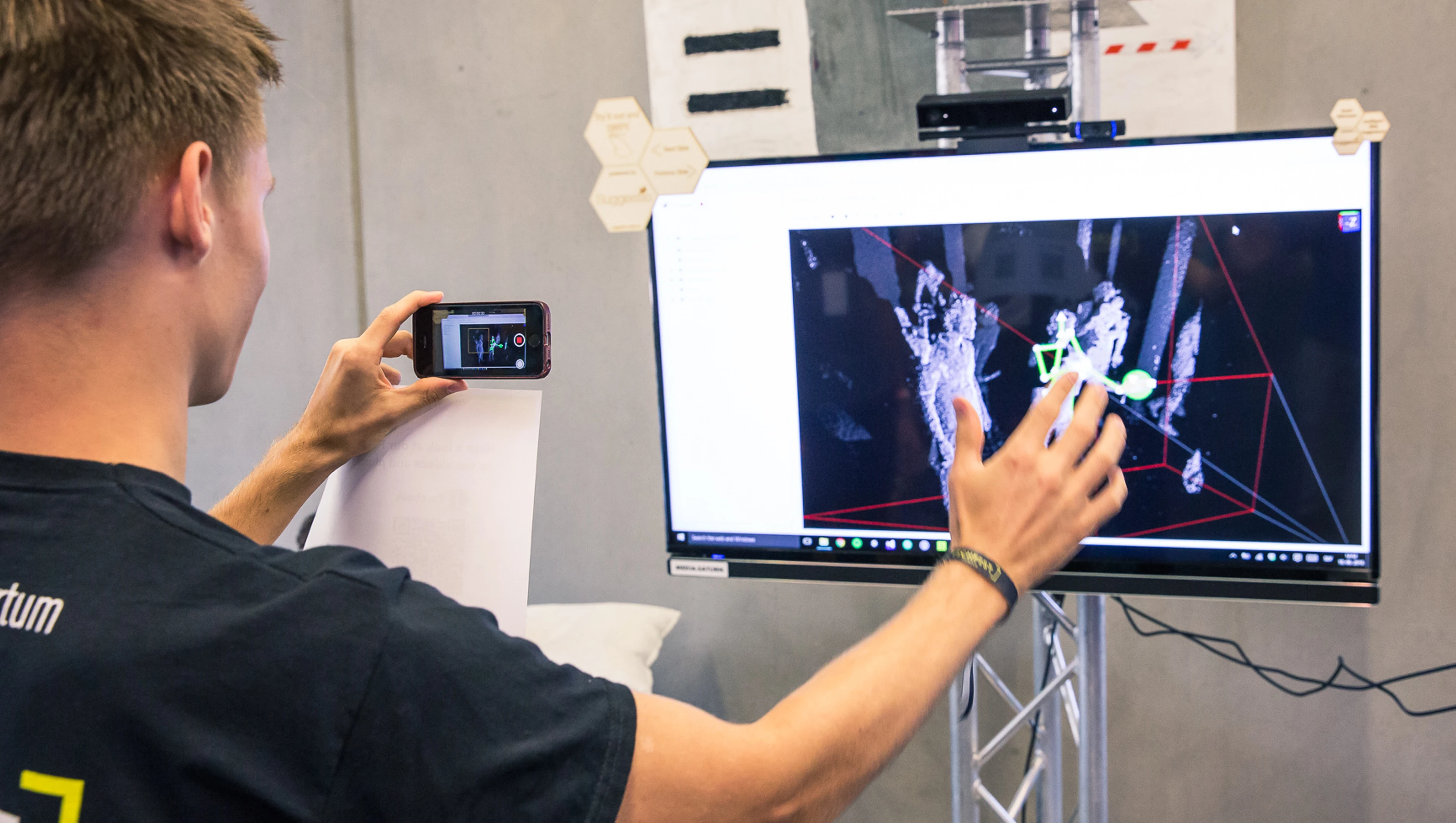
Artificial intelligence has been regarded as the most disruptive future technology in the digital change for several years. But is the potential of AI as promising as the media often present it? How can companies benefit and how do they already work with AI? And finally: how can it be made available to everyone? After all, artificial intelligence is already changing our everyday lives with lasting effects - often without us even knowing it.
In Germany there is indeed an AI boom, meaning that more and more companies are using artificial intelligence or machine learning to improve their industrial and business processes. According to an IDC study conducted in 2019 on the use of artificial intelligence in German companies, 41 percent have already implemented AI-driven projects, and as many as 88 percent are planning to do so by 2020. Nevertheless, Germany is lagging far behind countries such as China and the USA - also in terms of innovative strength. What is the reason for this? "There are various reasons for this. For example, very large government programs have been set up in China. AI is regarded as absolutely strategically important in China. AI has arrived in everyday life, particularly via face recognition and tracking. Content on AI is taught from primary school onwards. In the USA the activities are driven in particular by the large digital companies, which are pushing the development with enormous effort. A well-functioning start-up scene there is creating large AI start-ups," confirms Dr. Andreas Liebl, Managing Director of the appliedAI initiative at UnternehmerTUM.
It is incredibly difficult for successful companies to use disruptive technologies such as AI and therefore to question the foundations of their past success.
Dr. Andreas Liebl, Managing Director of the appliedAI initiative at UnternehmerTUM
Only few disruptive technologies in Germany
The study shows that German companies still have difficulties to drive innovation and disruption. In 2019, only one German start-up made it into the CB Insights AI 100 list of the best AI start-ups. The obstacles are not due to a reluctance to take a risk, but are largely structural in nature, such as the lack of skilled workers. "It is incredibly difficult for successful companies to use disruptive technologies such as AI and therefore to question the foundations of their past success. Since Germany is providing many hidden champions, these in particular must be careful not to miss the next wave of innovation," says Dr. Liebl.
To make AI tangible, we need to understand the fundamental difference between traditional technologies and systems that are AI-driven. "Modern AI systems are essentially 'trained' rather than 'programmed'. It requires much less code, but much more data. This characteristic results in a lot of differences. The development is much more experimental. It has to be re-trained when changes occur, instead of making an update. Results are much less comprehensible," summarises Liebl.
Making maximum use of intuition and calculation
In recent years, two of the biggest problems in AI development have finally been solved: Language and visual perception. These two factors have catapulted artificial intelligence into our real, human world in one fell swoop. This is because visual perception is essential for identifying problems. And language is crucial for human interaction. "Public and freely available pre-trained networks, trained with large amounts of data and the latest models, provide the technological basis for numerous applications. The accuracy of these models often lies within a range that we humans accept," says Dr. Liebl. So while traditional computer programs are designed for pure calculation, AI systems work on the basis of intuition and learning ability.
This is where it now becomes clear why artificial intelligence is so effective: the self-learning effect leads to the desired result many times faster than the human brain is able to. In addition, we can combine AI-driven systems with traditional computer programs to solve real everyday problems. In this way, the potential of intuition and calculation can be exploited to the full.
So if you immediately think of Siri, Alexa and Co. when you think of artificial intelligence, you are far from it. The use of AI goes far beyond virtual assistants. Established companies such as Microsoft and SAP are playing a pioneering role: they can now use artificial intelligence to process and use corporate data in a way never seen before - thanks to a decision-making capability that previously only human intuition could provide. With AI, data-driven companies are able to use predictive services to simplify business processes, develop scenarios, and quickly recognize and respond to their own optimization potential. Start-ups follow here: "At UnternehmerTUM, the majority of start-ups now integrate AI either in the development or in the product or service. Nevertheless, it is not easy to build a scalable business with AI, as individualisation and permanent support for the various applications often go hand in hand. AI-based business models are much more like service models than highly scalable digital products".

Dr. Andreas Liebl, Managing Director of the appliedAI initiative at UnternehmerTUM
Developing AI like a product
The appliedAI initiative of UnternehmerTUM starts exactly here with its mission "We lift Germany to the AI age". With strategic and technological support, appliedAI helps to integrate artificial intelligence into one's own business. "appliedAI has set itself the goal to accelerate the application of AI in Germany. That means we accompany companies on their way to use AI - via engineering, strategy and operationalization as well as competence development. For specific applications, we work on complex optimization solutions and self-learning asset control systems, among other things," explains Liebl.
What is important here? On the one hand, it is important not to view AI as a project, but rather as a product that is developed and continuously enhanced. In addition, AI should ideally not be implemented exclusively with external expertise in order to maintain a direct link to one's own core business. However, best practices should also not be dispensed with. Within the team, the requirements should be distributed in such a way that they include all important stakeholders from IT, business processes and core business equally.
With all the possibilities that AI will offer companies in the future: In order to implement artificial intelligence at all, it requires excellent industry knowledge of the employees and an equally profound understanding of technology and processes when integrating AI solutions. New technologies arise from innovative spirit and creativity. Therefore, to conclude: Progress is only possible through humans.





















